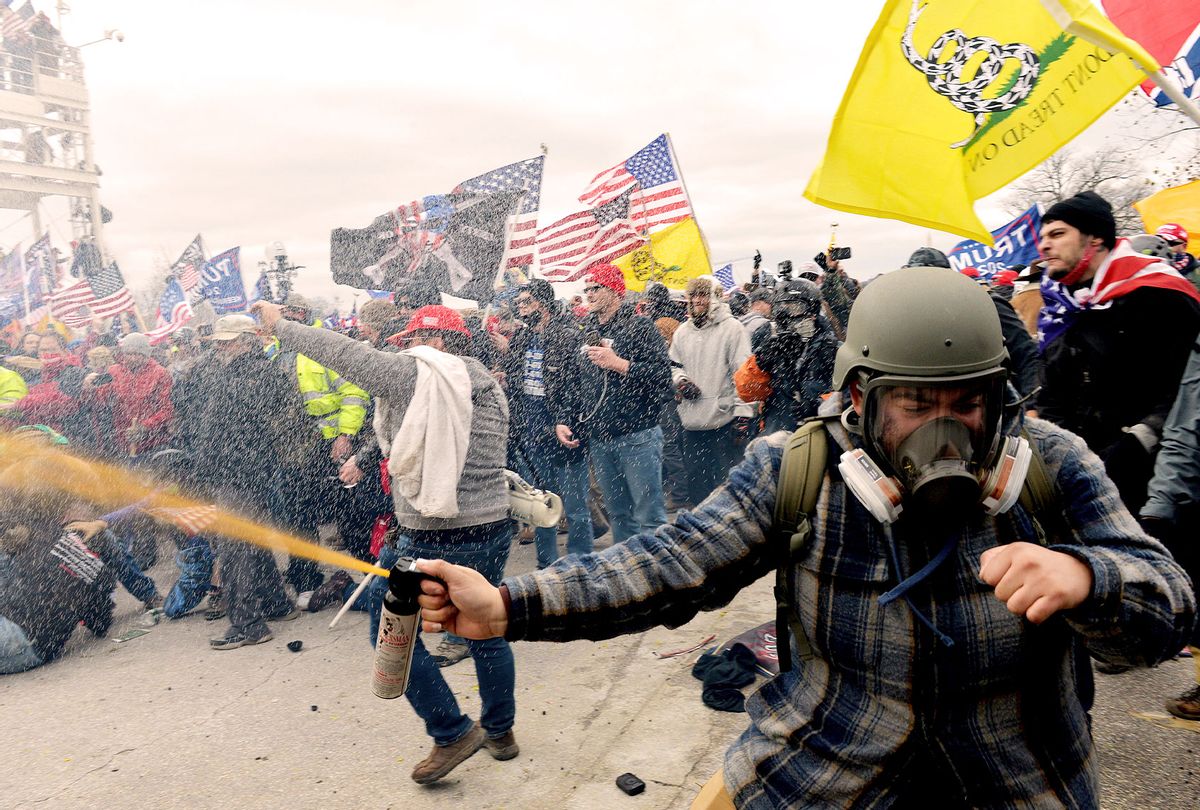Violence by anti-government groups is a very real danger to the United States government and to us. As a matter of fact, anti-government groups are recognized by the White House as one of the "most lethal elements of today's domestic terrorism threat."
Anti-government groups are what their name says they are — they are groups that oppose our government. They work to overthrow the United States government and have long threatened violence towards achieving that end. They hold paramilitary training. They accumulate weapons of war. They have demonstrated a willingness to commit violence to address real or imagined political grievances.
A new FBI report says that followers of QAnon's anti-government conspiracy theories are particularly prone to political violence. Government reports warn that when QAnon adherents loss faith in "the plan," they may feel obligated to commit real world violence.
Those concerns have proven to be on target. As of May 26, 2021, there have been 79 documented cases of QAnon followers committing attacks in the United States, 40 of whom took part in the Capital insurrection. In another instance, Neely Petrie-Blanchard, who is a recognized QAnon supporter, is alleged to have killed a sovereign citizen who she thought was working with the government to keep her away from her children.
Sovereign citizens — anti-government extremists — are also a cause for concern. The most extreme commit acts of domestic terrorism, often targeting law enforcement officers. (They have killed, harmed, or threatened to harm at least 94 LEOs.) And their danger extends beyond law enforcement. Sovereign citizens have committed extreme acts of violence against both government officials and the public at large.
The sovereign citizen/anti-masker crossover, present in Canada and Australia, may be spreading to the United States. Ammon Bundy, a well-known sovereign citizen who led an armed takeover of a federal facility in 2016, has also become an outspoken anti-masker. Reports show that another armed take over is currently brewing in Klamath Falls, Oregon. Bundy's "People's Rights Network" has been organizing and encouraging its members to participate. Those tracking these developments have issued this warning: "The growing number of People's Rights network members recruited, and radicalized during the pandemic, suggests that an armed occupation lead by People's Rights network activists has the potential to be larger and more volatile than the 2016 Oregon armed standoffs at the Malheur National Wildlife Refuge and the Sugar Pine Mine."
A related COVID-19 phenomenon involves conspiracy theorists in the UK attacking both 5G telecommunications workers and the towers themselves. The attacks stem from their false belief that electromagnetic waves, transmitted by 5G technology, cause COVID-19. Researchers have found that people with high levels of paranoia are the most likely to commit acts of violence.
An interesting connection has been made between the Capitol insurrectionists and anti-maskers through the recent indictment of former police chief Alan Hostetter on charges of conspiring with the Three Percenters to "corruptly obstruct, influence, and impede an official proceeding, to wit: the Certification of the Electoral College vote." Hostetter is the founder of the American Phoenix Project, a nonprofit organization. The Associated Press reports, "Alan Hostetter used his tax-exempt nonprofit as a platform to oppose COVID-19 lockdown restrictions, protest that the 2020 election was stolen from former President Donald Trump and advocate for violence against political opponents, according to an eight-count indictment secured by the U.S. Justice Department." (Read the indictment here.) He is accused of using the Phoenix Project to advocate violence against those who supported the 2020 election results, including calling for "tyrants and traitors ... to be executed."
Election officials in other states, especially Georgia, are facing similar political violence. Georgia Secretary of State Brad Raffensperger and his family were forced to go into hiding after members of the Oath Keepers, another anti-government group, were found outside their home. This same extremist group has also been accused of breaking into the home of the Raffenspergers' widowed daughter-in-law. Members of the Oath Keepers have been indicted on federal conspiracy charges in the January 6 Capitol insurrection as well.
Lesser-known militia groups continue to emerge as threats as well. A member of The Grizzly Scouts is accused of killing two law enforcement officers as part of the "war" against the police. And, notably, men associated with the Wolverine Watchmen were charged with conspiring to kidnap Michigan Gov. Gretchen Whitmer last fall. Their alleged plot included, at one point, storming the State Capitol and hanging "treasonous" politicians. The group is accused of spending months training for the event, allegedly stockpiling weapons of war, participating in elaborate field training exercises, and practicing combat first aid in the event of being wounded in a firefight with police.
Threats of extremist violence must always be on our radar. The Biden-Harris administration recently established a new Center for Prevention Programs and Partnerships (CP3). These programs are prevention-oriented — attempting to identify early risk factors and paths to violence. January 6 showed that the threats of anti-government groups are not hollow. Their danger is real and growing.

Shares